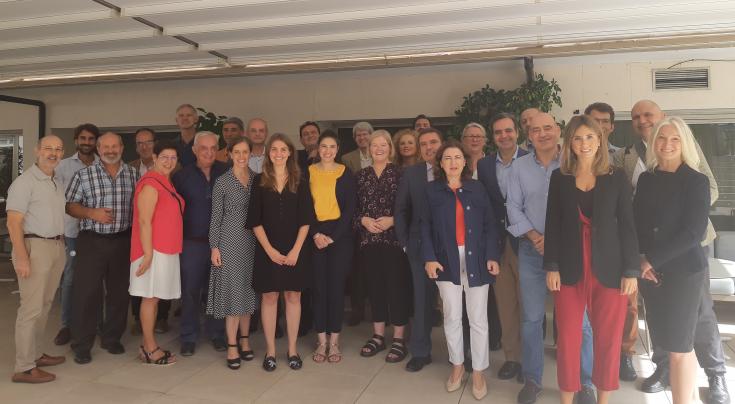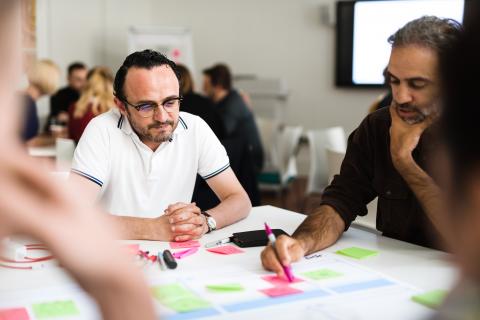Digitalisation of environmental procedures

On 5-6 October 2022, the Policy Learning Platform held an online peer review for the region of Andalusia’s Ministry of Environment, Sustainability and Blue Economy.
Current state of affairs
The region of Andalusia is located in the south of Spain, at the southernmost point of the European continent.
The ministry is responsible for the implementation and control of the environmental procedures in Andalusia, particularly those related to the IPPC Directive and other sectorial permits (air, water, waste).
As the processes are established by national and regional normative, they are often not integrated and take a very long time to complete. Therefore, there is a need for digitalization, improvement, and simplification of these procedures.
To address the challenges, the Andalusian Ministry of Environment, Sustainability and Blue Economy has shown interest in the experience of other regions and municipalities to get a better understanding of:
- How can they simplify procedures, design a functional framework, collect and analyse large amounts of data and enable data sharing between industry and the public sector?
- How can they design efficient communication between stakeholders and resolve issues related to communication between different administrations involved in the permitting procedure? How to integrate stakeholders and ensure project control and management?
Peers from across Europe
Alongside Magda Michaliková and Astrid Severin, our environment and resource efficiency Thematic Experts, three excellent peers were invited, and participated in the peer review:
- Caitriona Strain, ERNACT, Ireland
- Helene Rask-Lantz, County Administrative Board in Östergötland, Sweden
- Riccardo Leoncini, University of Bologna, Italy
The experts came together to share their experience and to provide recommendations for ways of tackling the challenges related to digitalisation of environmental permitting procedures.
They provided the host with valuable insight, know-how and practical suggestions for solving the challenges presented above.
Recommendations
The peers presented ideas for effective and efficient project governance and governance of permits, shared tips on how to design project control and management, possible design framework and data management options, provided ideas on actual data sharing and analysis, creation of indicators, interfaces and procedural models.
They also presented several inspirational examples, such as a self-assessment tool used by Swedish municipalities to evaluate their waste management plans, or the Italian Circular Economy Stakeholder Platform.
mission and vision statements of the digitalisation project, map stakeholders, data, available processes and systems, identify key groups and use them to test and co-develop the tool.
of triple / quadruple helix stakeholders (public administrations, businesses, academia and citizens), and meet in the middle of a top-down and bottom-up approach.
innovation is created at the crossroads of different backgrounds and disciplines, use two-way communication processes such as focus groups before making decisions, conceive a communication plan for different stakeholder groups and appoint a communications manager.
test the approach, see the project as an opportunity, consider working in parallel in different areas, and put tools in place to manage the project (data management office, management software).
offer a self-assessment tool to municipalities and involve them to obtain a benchmark and better understanding of gaps and progress, and consider carrying out a SWOT analysis.
Ensure the participation of industry and companies in the design of the system, and offer trainings and education on environmental permitting.
The host’s policy challenges and all the peer suggestions can be found in the follow-up report.
Pleased with the outcome of two full days of intense discussions, Andrés Leal and Pablo Soriano from the DG of Environmental Sustainability and Climate Change, Ministry of Environment, Sustainability and Blue Economy, as well as the peer Helene Rask, County Administrative Board in Östergötland, Sweden commented:
The work with the peers has been very rewarding and I am looking forward to our future collaboration. We have learned many things and already assured a lot of collaboration for our digitalization project. In a way, it has kick-started our stakeholder group on the digitalisation of environmental permitting procedures. In addition, we have gained so many ideas that the implementation of all the actions might be challenging for us.
This has been a very nice and professional meeting. Really a very good experience for us. We appreciate your proposals and my notebook is full of interesting ideas. Thank you and I look forward to our future collaboration.
Thank you very much for the invitation to the meeting. This has been very professionally organised by the Policy Learning Platform and in a very short time, we have achieved a lot. A very effective process. I am impressed with the planning, the structure of the meetings, the presentations and the clear aim.
The host used the peer review to involve local stakeholders in a very lively discussion and is now assessing the recommendations received from the peers to see how they could inform the decision-making process to improve the digitalisation of environmental permitting procedures in Andalusia.
Apply for a peer review!
Find solutions to your regional policy challenges with our experts and selected peers during a two-day peer review.


